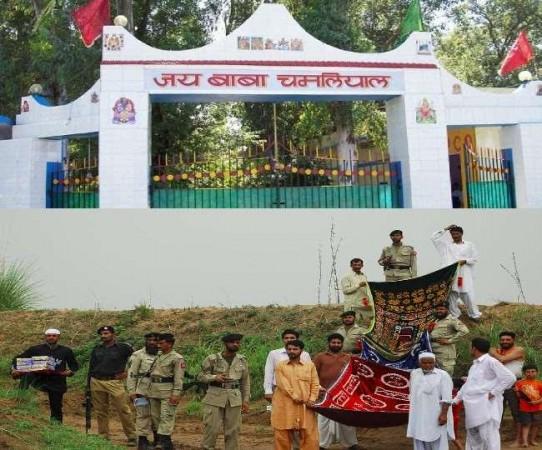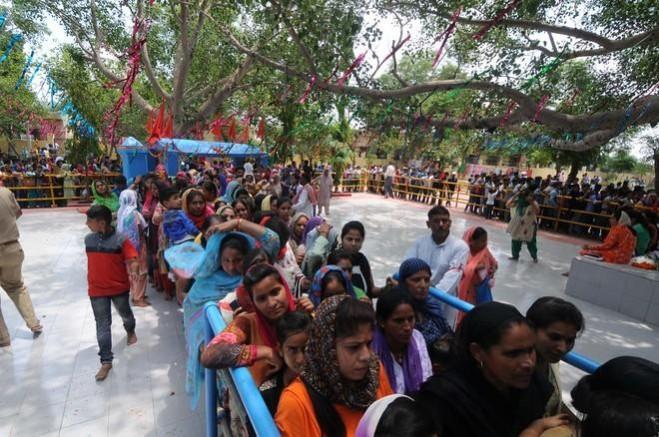Fearing the spread of the deadly virus due to a huge gathering of devotees, authorities on Friday decided to cancel this year's annual Mela (fair) at Baba Chamliyal shrine along the Indo-Pak international border in Jammu and Kashmir's Samba district.
"This year's Mela has been cancelled due to the prevailing situation," Deputy Commissioner, Samba, Anuradha Gupta told International Business Times, adding, "Only symbolic pooja will be performed on June 24."
Keeping in view the prevailing situation, like the previous year, neither 'Shakkar' (holy sugar) nor Sherbet (holy water) would be given to Pakistani devotees. Earlier in the year 2020, the annual event was also cancelled due to the first wave of Coronavirus.

Importance of Baba Chamliyal Shrine
Situated on the IB, Baba Chamliyal Shrine is the most revered holy place in this region as devotees from both sides of the border participate in a special fair held every year on the fourth Thursday of June to keep the Indo-Pak bonhomie alive. This year the 'Mela' was scheduled to be organized on June 24.
Every year, devotees from both sides converge at the border, near the shrine's sanctum sanctorum, to pay obeisance to Baba Dalip Singh Manhas, a saint popularly known as Baba Chamliyal. Baba Chamliyal, after whom the village is named, lived about 323 years ago and is revered by the people of all faiths because of his saintly qualities and spiritual powers.
Baba Chamliyal was beheaded by those who did not like his growing influence. They dropped his body at Saidanwali village in Pakistan, around 300 metres from the border, and the head on the other side, now famous as Chamliyal.
The legend has it that where his blood fell, the soil turned fertile and a well was dug at the site where his head was dropped. Later, his devotees built a tomb in his memory at the spot. Devotees from both sides of the international border believe that the soil and water from the shrine cure skin diseases.

Devotees from Pakistan reached at 'Zero-Line' during Mela to pay obeisance
During the Mela, Pakistan Rangers used to exchange sweets with BSF personnel at Zero Line while a delegation of the force offered a 'Chadar' at the shrine, located one-and-a-half kilometres from Zero Line.
In exchange, the BSF personnel gave 'Shakkar' (holy sugar) and 'Sherbet' (holy water) from the shrine to the team for the devotees back in Pakistan. After getting the Shakkar and Sherbat, devotees from Pakistan organized a similar fair simultaneously for a week in Saidanwali village of Sialkot district.
Till 1971, Pakistani devotees were allowed to enter the Indian side
Before 1971, Pakistani devotees were allowed to come to the Indian side of the border to pay obeisance at the shrine. However, after the 1971 India-Pakistan war, the practice was stopped. Since then, only a Pakistan Rangers delegation comes to offer Chadar and, in return, carries 'Shakkar' and 'Sharbat' from the shrine for the devotees in Pakistan.








